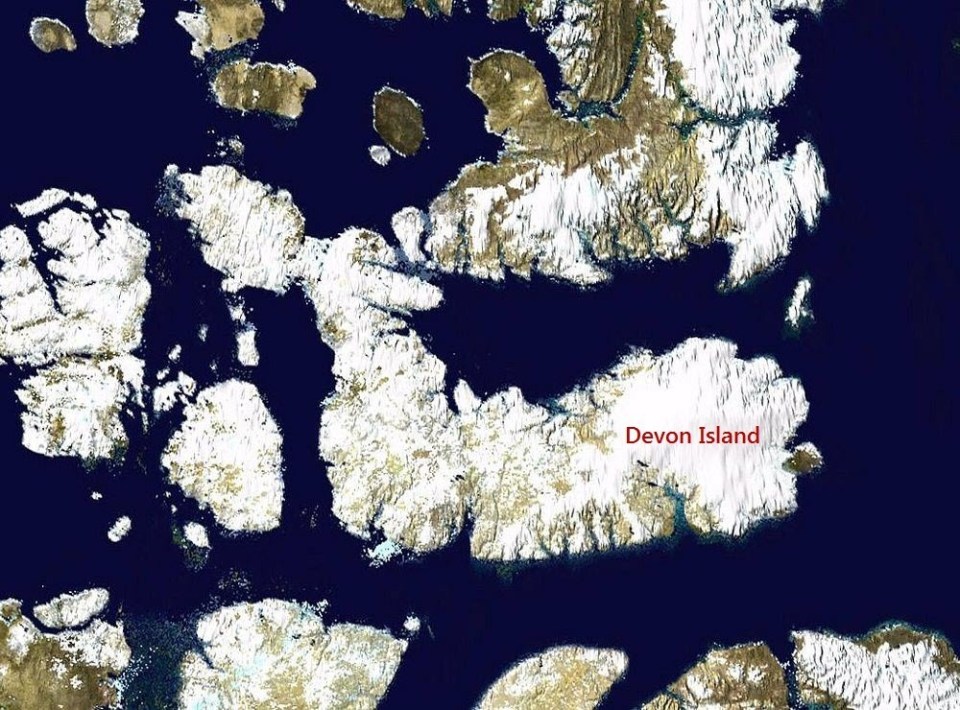In the northern reaches of Canada, there is a remote island with terrain so rugged that it helps scientists prep for missions to Mars. Located in close proximity to Greenland, uninhabited Devon Island is believed to be the closest landscape on Earth to the Red Planet. Devon Island is freezing cold, dusty, and almost entirely devoid of plant life. Images of Devon Island are nearly identical to those beamed back to Earth by the Perseverance rover which landed on Mars on February 18, 2021. Much like Mars, Devon Island features a sizable crater and “patterned ground” covered in ice that routinely thaws and refreezes. Devon Island is even home to a V-shaped canyon that is almost identical to those spotted on Mars. Devon Island’s V-shaped canyon is appropriately called Astronaut Canyon.
Starting in 1997, teams of scientists have converged on Devon Island virtually every summer to test out robots, spacesuits, and all terrain vehicles designed to withstand the Red Planet’s harsh climate. Devon Island features a research station virtually identical to the one that scientists hope to build on Mars. From 2009-2011, a team of 6 scientists took a trip across Devon Island’s Arctic landscape in a pressurized Humvee dubbed the HMP Okarian. The extreme cold presented many challenges on the 2,000-mile expedition, but the team did successfully reach their destination. The expedition across Devon Island is chronicled in a documentary called Passage to Mars.

K10 Rover “Red” descending Drill Hill toward base camp at Haughton Crater Devon Island, Nunavut. Photo credit: Matt Deans/NASA
Entrepreneur Elon Musk famously said that he wishes to found a Martian colony and spend his final days on Mars. Any person interested in ditching Earth for the Red Planet should try out a summer on Devon Island first. According to a seasoned team of scientists, if the harsh conditions on Devon Island are any indication—only the most rugged explorers will thrive on the Red Planet.

FMARS habitat. Photo credit: Brian Shiro/Wikimedia

Photo credit: Joseph Palaia/Wikimedia

Finding a gypsum deposit at Gemini Hills in the Haughton Impact Crater. Photo credit: Brian Shiro/Wikimedia

Crew 7 members on a motorized EVA on Devon Island in July 2002. Photo credit: The Mars Society/Wikimedia

Truelove Lowlands, Devon Island, Nunavut, Canada. Photo credit: Martin Brummell/Wikimedia


These fraudsters need to be picked up & gitmoed! the ones that are still w/us!